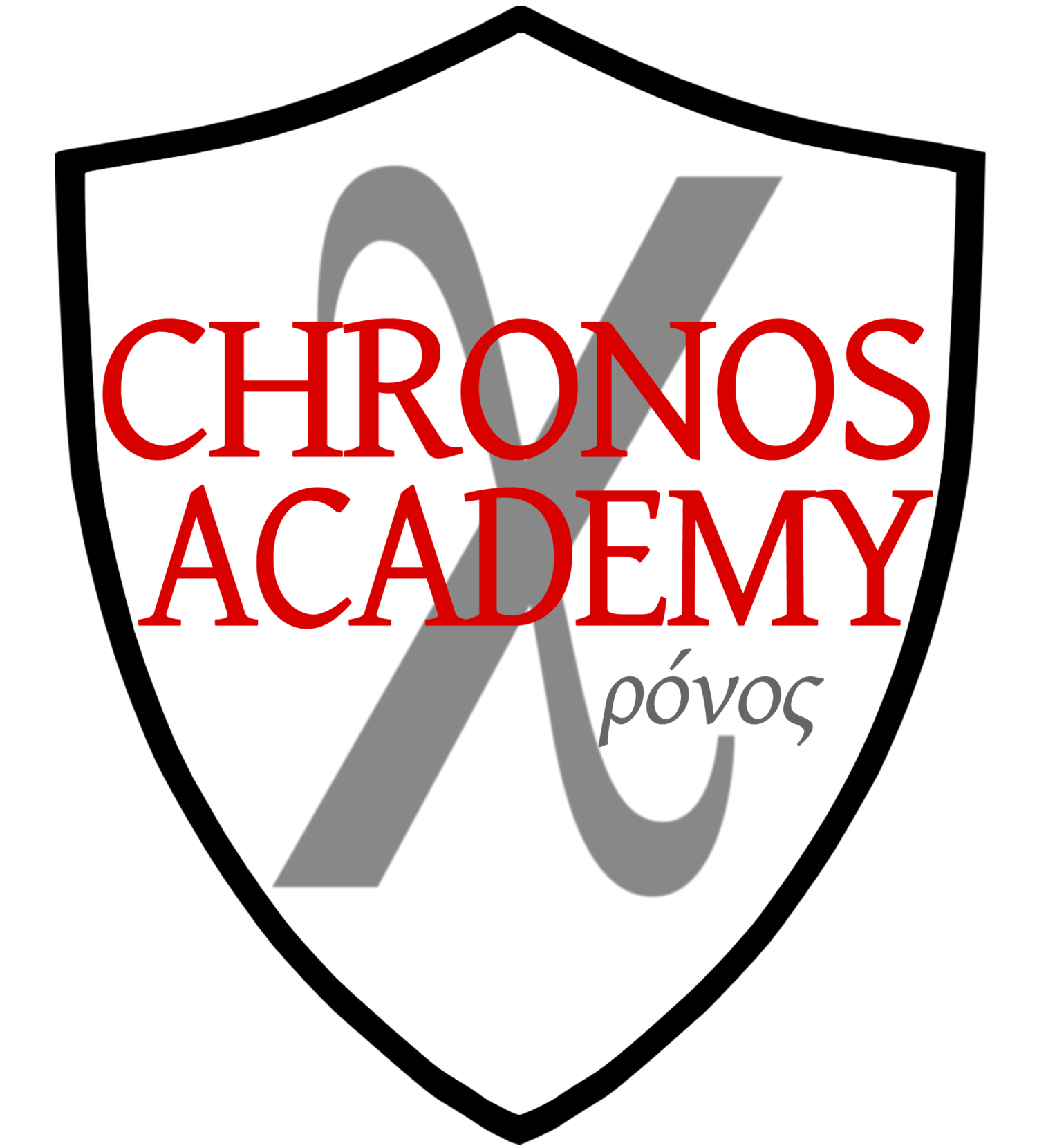Middle Ages Week 7
/Thursday Cohorts
Grammarians
PreK-4th graders
History: Memorize “Charlemagne, Holy Roman Emperor, began the Carolingian Renaissance with a new law that the Church must build schools throughout Western Europe in 800 AD.”
Learn about Charlemagne on Khan Academy: Charlemagne’s coronation, Carolingian Renaissance and Carolingian art
Read The Story of the World, Vol. 2, Chapter 13 and do the activities in the Activity Guide.
Geography: Draw Africa and label the Eastern African countries:
Mozambique
Tanzania
Kenya
Somalia
Djibouti
Eritrea
Ethiopia
South Sudan
Uganda
Rwanda
Burundi
Practice memorizing the countries with this game!
Science: Memorize "A thin line of light energy is called a light beam and light rays always travel in straight lines. Shadows form when an object blocks a light beam."
Math: Memorize The degrees of polynomials are constant (y=x^0), linear (y=x), quadratic (y=x^2), cubic (y=x^3), quartic (y=x^4) and quintic (y=x^5).
Investigate polynomials and their degrees.
Greek: Memorize some new vocabulary:
ἡ ἀρχή the beginning
ἔχβάλλω I cast out
ἡ χώρα the country
ὁ ὅχλος the crowd
πίπτω I fall
English: An adverb modifies a verb, adjective, or other adverb, answering the questions how? when? where? why? and To what extent?
Investigate adverbs on Grammar Revolution.
Presentation: Prepare a presentation on one of these activities or another topic you’ve been learning and share with the class next week!
Writing Club (3-4th)
“Medieval History-Based Writing Lessons”: Complete Lesson 7, Unit 3.
Diagram Week 7 sentences.
Lower Dialecticians (5-6h grades)
Writing: Do a key word outline (we did this in class), first draft, edits & final draft 3 paragraph summary of The Song of Roland using the 3 Paragraph story sequence:
I. Setting & Characters
II. Conflict
III. Climax & Resolution
***Complete the Fall Session 1 review quiz, from memory first then use your notes.
Presentation: Research and prepare a notecard keyword outline for your presentation this week. Don’t write it out word for word, and do bring a notecard of your key word outline - you’ll forget what you learned! Here are the topics you picked in class:
Sabine, Catalina, Jocelyn - Carolingian art Charlemagne’s crown, Charlemagne’s monogram, Charlemagne’s sword, painting of his coronation, Carolingian Manuscripts, Good images
Henry - science: Al-Kindi, light rays, how eye works
Cooper - history: Charlemagne, his sword, his travels or Learn about Charlemagne on Khan Academy: Charlemagne’s coronation, Carolingian Renaissance and Carolingian art
Gino - Greek grammar or vocabulary
Phoebe - math: Alcuin of York or another word problem
History: Memorize “Charlemagne, Holy Roman Emperor, began the Carolingian Renaissance with a new law that the Church must build schools throughout Western Europe in 800 AD.”
Read The Story of the World, Vol. 2, Chapter 13 and do the activities in the Activity Guide.
Learn about Charlemagne on Khan Academy: Charlemagne’s coronation, Carolingian Renaissance and Carolingian art
Geography: Draw Africa and label the North & Western African countries from memory.
Northern Africa: Sudan, Egypt, Libya, Tunisia, Algeria, Morocco,
Western Africa: Western Sahara, Cape Verde, Mauritania, Senegal, The Gambia, Guinea-Bissau, Guinea, Sierra Leone, Liberia, Cote d'Ivoire, Ghana, Togo, Benin, Nigeria, Burkina Faso, Mali, Niger,
Central Africa: Chad, Central African Republic, Cameroon, Equatorial Guinea, São Tomé and Príncipe, Gabon, Republic of the Congo, Democratic Republic of the Congo, Angola
Southern Africa: Namibia, South Africa, Lesotho, Swaziland, Botswana
Eastern Africa: Mozambique, Tanzania, Kenya, Somalia, Djibouti, Eritrea, Ethiopia, South Sudan, Uganda, Rwanda, Burundi
Practice memorizing the countries with this game!
Math: Finish Alcuin of York’s word puzzles as well as the worksheet on variables. Do grade level math on Khan Academy or in your own curriculum.
Investigate polynomials and their degrees.
English: Do Question confirmation & label each word in the sentence, state structure, purpose & patterns for each and diagram Week 7 sentences:
1. Reform Chinese society.
2. Believe numbers!
3. Attack Greece!
4. Teach Taoism.
5. Rule China!
6. Fight the Athenians.
7. Build schools throughout Western Europe!
8. Block light beams!
9. Calculate degrees!
Greek: Memorize some new vocabulary and complete lesson 7 in your workbook.
ἡ ἀρχή the beginning
ἔχβάλλω I cast out
ἡ χώρα the country
ὁ ὅχλος the crowd
πίπτω I fall
Upper Dialecticians
7th-9th Graders
From our session Thursday 9/28/17 - Please read this and know what to work on BEFORE Monday.
Retake the Fall Session 1 review quiz, all over again. Study first, then sit down and get it all right!
Writing: One essay, one outline. Write a summary of the Song of Roland using the 3 Paragraph story sequence:
I. Setting & Characters
II. Conflict
III. Climax & Resolution
Geography: Draw and label the countries of North, West & Central Africa:
Northern Africa: Sudan, Egypt, Libya, Tunisia, Algeria, Morocco,
Western Africa: Western Sahara, Cape Verde, Mauritania, Senegal, The Gambia, Guinea-Bissau, Guinea, Sierra Leone, Liberia, Côte d'Ivoire, Ghana, Togo, Benin, Nigeria, Burkina Faso, Mali, Niger
Central Africa: Chad, Central African Republic, Cameroon, Equatorial Guinea, São Tomé and Príncipe, Gabon, Republic of the Congo, Democratic Republic of the Congo, Angola
Southern Africa: Namibia, South Africa, Lesotho, Swaziland, Botswana
Eastern Africa: Mozambique, Tanzania, Kenya, Somalia, Djibouti, Eritrea, Ethiopia, South Sudan, Uganda, Rwanda, Burundi
Practice memorizing the countries with this game!
History: Memorize “Charlemagne, Holy Roman Emperor, began the Carolingian Renaissance with a new law that the Church must build schools throughout Western Europe in 800 AD.”
Read The Story of the World, Vol. 2, Chapter 13 and do the activities in the Activity Guide.
Learn about Charlemagne
Listen to experts: The Carolingian Renaissance
Khan Academy Charlemagne’s coronation and Carolingian Renaissance and Carolingian art
Literature - Learn about the Song of Roland. We printed these stanzas:
1-2 Introduction
46 Ganelon promises to betray Roland to Marsilla
58-59 Ganelon volunteers Roland for rear guard
79 attack
83-86 several people try to convince Roland to sound the horn
126-130 too late to blow horn, decides to blow it
133-135 blows horn and dies
Philosophy - Learn about the philosophy of Al-Kindi’s student Abu Zayd al-Balkhi.
Math - Alcuin of York. Here’s all 53 problems. Avoid looking at the answer for each question.
Khan Academy,
Upper Dialecticians (7th-9th grades) master the Arithmetic subject, THEN start mastering Pre-Algebra OR Geometry, your choice!
Science - Learn about al-Kindi and his ideas about optics.
Greek: Memorize some new vocabulary and complete lesson 7 in your workbook.
ἡ ἀρχή the beginning
ἔχβάλλω I cast out
ἡ χώρα the country
ὁ ὅχλος the crowd
πίπτω I fall
Diagramming: Do Question confirmation & label each word in the sentence, state structure, purpose & patterns for each, and diagram the (Simple S-Vt-DO) sentences below and for a challenge, diagram the history sentences above
1. Reform Chinese society.
2. Believe numbers!
3. Attack Greece!
4. Teach Taoism.
5. Rule China!
6. Fight the Athenians.
7. Build schools throughout Western Europe!
8. Block light beams!
9. Calculate degrees!
Tuesday classes
Book Club: Read at least 20 pages in your Medieval library book, annotate on sticky notes as you read, then make notes in your Book Club journal (title, author, copyright date, main characters, plot summary & new vocabulary) and be ready to present on what you’ve read so far. Tell us how one of the characters in your book is similar to a character in White Stag or Beowulf.
MAKE: History: We’ll read Story of the World chapter 13 in class and make Gregorian chants.
Drawing out Arithmetic: In class we’ll construct Euclid’s Elements Proposition 4.5
Greek: Complete & study lesson 7 for our quiz! We’ll start Greek Workbook Lesson 8.
Wednesday classes
Make Science: In class we’ll make a pin hole camera like al-Kindi.
Math Club: Investigate Algebra and degrees of polynomials
Art Appreciation: Make Arabic illuminated manuscripts and Carolingian crosses
Writing Club:
Upper Dialecticians (7-9) and Lower Dialecticians (5-6):
IEW Medieval History-Based Writing Lessons: Complete Lesson 8, Unit 3. Read “The Introduction”.
Familiarize yourself with the contents of the book. Read page 59 and learn about “alliteration”. Read “The Assignment” on page 53. Write your first draft from your Story Sequence Chart on page 61 and use page 62 to brainstorm. For your FINAL draft use Modified MLA format (see Appendix 1).
Use the checklist on page 63 to be sure you have included every element required this week. There are 3 elements of style per paragraph this week and a decoration! Practice vocabulary from Lessons 1-7and try to include some vocabulary words in your paragraph!
OR: Write your Keyword Outline and present from that in class! No first draft, just your KWO!
Fix it! Grammar: Complete Week 7 in your book and copy the corrected paragraph into your notebook. Review the Grammar Cards in the back of your notebook. Review page 18 in preparation for week 8!
Upper Grammarians (3-4):
IEW Medieval History-Based Writing Lessons: Complete Lesson 7 , Unit 3 Read “The Assignment on page 53. Read page 51 and learn about “Strong Verbs” and Banned Verbs (go/went, say/said) Complete page 52 for practice. Write your first draft from “The Story Sequence Chart” on page 55. Use page 56 to brainstorm, then write your paragraph from your Key Word Outline..
For your FINAL draft use Modified MLA format (see Appendix 1) Use the checklist on page 57 to be sure you have included every "Element of Style" required this week. Hint: there are 3 Elements of Style per paragraph this week!
OR: Write your Keyword Outline and present from that in class! No first draft, just your KWO!
Practice vocabulary from Lessons 1-7. Try to include some vocabulary in your paper for extra points!
Fix it! Grammar: Complete Week 7 in your book. Copy the corrected paragraph into your notebook. Review the Grammar Cards in the back of your notebook. Review page 18 in preparation for week 8!



